InduCult2.0 partnership - 'A strong team'
Within InduCult2.0, 8 longstanding regions team up with 2 academic institutions
District of Zwickau (Germany) (Lead Partner)
The district of Zwickau is the smallest district of Saxony but with 350.000 inhabitants it has the highest density of population in East Germany. The region calls itself “engine of Saxon economy“ which is no overstatement: Over the last century, the district has been a hot spot of manufacturing and industry in Germany. The branches with a strong tradition and major economic impact until today are automotive, engineering and textile. However, no metropolitan area developed but an extensive and dense net of so called industrial villages and towns. Industry will keep playing a key role also in the district’s future. Due to the sudden political and economic shift caused by the reunification the region was forced to develop competences in dealing with industrial transformation and heritage earlier and more abrupt than many other regions in Germany. The topic has been on the agenda over the last 25 years now. It is no wonder that InduCult2.0 is not the first Central Europe project the district initiated and which is dealing with industrial culture. Apart from the outstanding role as InduCult2.0 Lead Partner, the district engages thematically in all work packages. It intends to establish the topic of industrial culture as a main headline of regional self-understanding and outside attractiveness, also with a view of securing its economic competitiveness.
More info : http://www.landkreis-zwickau.de/inducult2-0

Leibniz Institute for Geography (Germany)
The Leibniz Institute for Regional Geography (IfL) is the only research institute for Geography in Germany which is not attached to a university. The research carried out at the Institute is concerned with spatial structures and current developments that have a spatial impact in Europe, as well as with the theoretical and historical foundations of Regional Geography. Under the heading "New Geographies of Europe" the researchers analyse ongoing processes, particularly in Central and Eastern Europe. An important area of the institute´s work is the presentation of research findings for specialist and more general audiences.
The IfL analyses socio-economic structures and developments in Germany and Europe from a geographical perspective. A further specialist area focuses on innovative ways of visualising geographical knowledge and the related principles of operation. The institute is financed by the Federal Republic of Germany and the Free State of Saxony. Together with 87 other non-university research institutes and service providers, the IfL is a member of the Leibniz Association.
Leipzig is a self-confident industrial city, whose everyday life and economic success (due to location, dynamic entrepreneurship and workforce) is directly linked to manufacturing companies. The rich industrial heritage refers to a very manifold industrial past of engineering, manufacturing, printing industry, textile industry, spinning and others that has undergone a substantial restructuring in the 1990s. One regional highlight is the event “Tage der Industriekultur” (Days of Industrial Culture) in Leipzig. From 11th-14th August 2016 there were conducted the “Days of Industrial culture” for the fourth time with 6200 guests. 89 partners conducted a diversified programme that included 154 events.
More info: https://www.ifl-leipzig.de/en.html
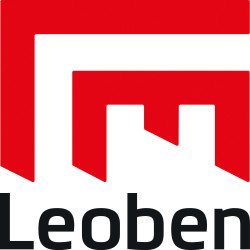
Municipality of Leoben (Austria)
With its 25.000 inhabitants the city of Leoben is the second biggest city of the federal state of Styria/Austria, the capital of the district Leoben and the intellectual, cultural and economic centre of the region “Upper Styria”. Global industrial players such as the steel plant voestalpine (2200 workers in Leoben, 10.000 in the Mur-Mürz valley in the near proximity) or AT&S have their headquarters in Leoben. Furthermore the city is as an important centre of research and development with focus on industry and mining and hosts an international prestigious mining university with nearly 5.000 students from 70 nations. The urban planning department of the city of Leoben has longterm experience in urban planning and city development, especially regarding open and public spaces.
The cultural department and museum center are highly engaged in the valorisation of Industrial Culture, with a strong focus on the youth and the creative sector. The “Styrian Iron Route” in the surroundings of Leoben comprises 18 municipalities in the northern part of Styria. The most impressive sight is the “Erzberg” with its open-cast mine - the only active iron ore mine nowadays in Central Europe and a well-known touristic sight. The industrial heritage can be experienced in the 13 museums of the museum association Styrian Iron Route. A profound cultural concept has been developed for the city of Eisenerz (eisenerz*ART) recently. The “Rostfest” has been established as an unusual post-industrial yearly festival since 2012.
More info:
www.leoben.at

University of Graz (Austria)
The University of Graz (Karl-Franzens-Universität) was founded in 1585 and is Austria's second oldest university and one of the largest in the country. It has some 30,000 students and 3,800 employees. Within the Faculty of Environmental And Regional Sciences And Education, the Department of Geography and Regional Science covers research fields such as regional development, environmental research and geospatial technologies.
The Department has a long-standing interest in the research on old-industrial regions, covering aspects such as brownfield reclamation, innovation and regional development strategies. This interest was underlined by the participation of the department in various projects in this field, e.g. READY (INTERREG IIIB, 2003-2006), ReSOURCE (EFRE-Objective 3 "Territorial Cooperation", 2009-2012) or SHIFT-X (EFRE-Objective 3 "Territorial Cooperation", 2012-2014) .
All projects indicated dealt with endogenous potentials of old-industrialised regions, mainly in connection to industrial heritage, as an element for regional development and innovation. Therefore the department intensively supported the application for the InduCult2.0 project from its starting phase, as Industrial Culture is seen as a still largely neglected segment of potentials. Research interest is to further investigate and understand the potential role of Industrial Culture in establishing a successful regional development path in old-industrialised regions after the transformation of their regional economy.
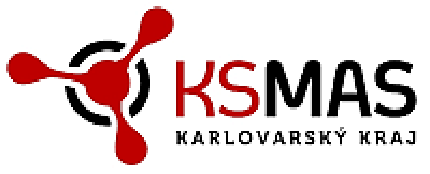
County Associaton of LAGs Karlovy-Vary Region (Czech Republic)
The County association of Local action groups (LAGs) of Karlovy Vary Region (KSMASKK) covers the Karlovy Vary district and part of the Ústí nad Labem district with a population of ca. 350.000. It consists of three local action groups (LAGs): Sokolovsko, LAG Vladař and LAG 21. The area is known as industrial and spa region in the western periphery of the Czech Republic. Industry has played a significant role since the 19th century onwards, until today (porcelain, musical instruments, timber, glass, chemical, energy, engineering and mining). In the 90’s, major traditional industries lost their market position or disappeared completely and many inhabitants became unemployed. KSMASKK is a main actor for regional development with a focus on promoting the region and increasing its tourism. Additionally, the institution is actively engaged projects concerning the creation of sustainable rural life. KSMASKK also initiates educational activities for all generation. As umbrella institution it coordinates its founding LAGs and manages activities that are beyond the scope of its individual members. KSMASKK exists since 2006 on a voluntary level; in 2014 it was transformed to an organization with legal status.
KSMASKK itself belongs to the national LAG network that also welcomes InduCult2.0 and is able to spread outcomes to the whole of the Czech Republic. KSMASKK can draw on the international project experiences of its members (SHIFT-X, ReSource etc.).
More info: http://ksmas-karlovarsko.cz/projekty/inducult-english/

Padova Chamber of Commerce, Crafts, Industry and Agriculture (Italy)
Italian Chambers of Commerce Industry Handicraft and Agriculture are public bodies that perform functions of general interest for the business system, focusing on development of local economies. They are all independent bodies as each Chamber defines its own political programme and is independent from a financial and management point of view. All Chambers are part of a network structure based on a Regional and National system which provides real-time data generated by each individual Chamber throughout the national territory.
The functions and services proposed can be divided into 4 main categories:
- Administration services: archiving and updating of the Italian legal Business Registers.
- Promotional services: support for businesses, new companies and local economy development.
- Monitoring, studies, and analysis of local economy data, collected from and provided to businesses.
- Market regulatory functions: to promote and increase transparency, confidence and equity amongst businesses and between businesses and the general public.
Padova Chamber of commerce was founded in 1811. It supports and promotes services of interest to the enterprises located in the province of Padova. More specifically, it promotes activities that focus on encouraging entrepreneurial activities, offers training courses and also aims at fostering innovation. It also focusses on targeted activities that aim to boost the economic development of the area and the level of competitiveness of the local business system at a domestic and international level (also through its special agency for internationalization, Padova Promex), enhancing the attractiveness and competitiveness of the territory, dealing with tourism and culture.

BSC Kranj (Slovenia)
BSC Kranj is a regional development agency, with over 20 years of experience in preparing and implementing EU funded projects. We hold a central role in combining local and regional needs with funding opportunities among 18 municipalities of Gorenjska region. We create links between entrepreneurs, chambers, municipalities, institutes, ministries, and other institutions regarding five priority fields: entrepreneurship, human resource development, tourism, spatial planning and rural development. We act as a supporting organisation for the public sector as well as for SME's in the sense of consulting and offering technical assistance in cooperation of EU projects. In all our projects we aim for sustainability.
InduCult2.0 offers the chance for BSC and our regional stakeholders to get to acquainted with the concept and opportunities of Industrial Culture, share it and develop new solutions for changing the perception on industrial heritage and modern industry. The main challenges through the project are:
- Industrial heritage in brownfield areas as an asset for rediscovering identity and as a base for new economic development;
- Industry as potential partner in culture development of the region;
- Tapping synergies of cooperation between heritage institutions and current industry;
- Upgrading of cooperation between schools and companies in function of future employment opportunities;
- Fostering interaction between creative communities and productive industry.
More info: http://www.bsc-kranj.si/projekti/inducult-20
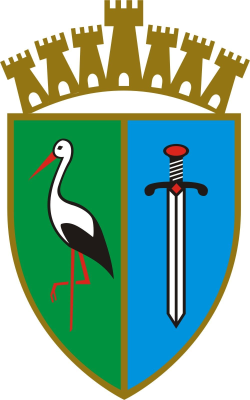
Sisak-Moslavina County (Croatia)
Sisak-Moslavina County administration (SMC) was constituted in 1993 as a regional administrative unit. The county is placed in the middle of Croatia and can be considered as a rural-industrial area. It covers 4500 km² with a population of 180.000 in 7 cities and 12 municipalities. SMC plays a central role in managing development of the region. SMC encourages development of crafts, small and medium entrepreneurship and industry. It has established strong cooperation with chamber of economy and chamber of crafts. It supports as well effective management of culture and historic heritage through capacity building, identification and involvement of key actors.
InduCult2.0 activities are in line with the county´s approved development strategy, chapters economy and culture. The area of SMC knows a rich industrial tradition (from crafts to large plants to new technologies and value-added products).
SMC´s thematic competences are related to:
- events and exhibitions related to industrial heritage,
- reflection of industry through art,
- cooperation with schools, museum (e.g. Days of Industrial Heritage), chambers.
More information: http://www.smz.hr/site/inducult
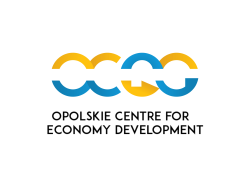
Opolskie Centre for Economy Development (Poland)
The Opolskie Centre for Economy Development (OCRG) was created in 2007 by the Self-Governement of Opolskie Voivodeship, a non-metropolitan industrial region, home to ca. 1 mio. Inhabitants. Main economic branches – in the past and still today – are the construction-, automotive-, machine- and metal industry, as well as the chemical-, fertilizer-, and furniture industry. The region’s economy has been undergoing substantial transformation since the ‘90s. Some traditional companies have not survived the restructuring process. New companies have developed since, using the available knowledge, skills and sites – often based on the tangible and intangible remains of the industrial past. The main tasks of OCRG is to create favorable conditions for a competitive and innovative economy in the region. OCRG is the intermediate body for implementing the Regional Operational Programmes for entrepreneurs. Additionally, OCRG is the managing institution of Regional Innovation Strategy Implementation. The institution supports regional companies, incubators, clusters, scientific, technological and industrial parks. Recently OCRG has engaged in the field of innovation support together with other regional actors (universities, NGOs).
This successful approach will be shared in InduCult2.0, but also extended towards creative economy as well as innovation history. OCRG will draw on cooperation with LAGs, tourist associations and departments for tourism and culture of the Marshall’s Office. Via InduCult2.0, OCRG intends to introduce the theme of Industrial Culture as an additional, synergetic impulse to the voivodship’s smart specialization strategy, and to align the goals of the project with the Regional Innovation Strategy of Opolskie Voivodeship.
More info: http://ocrg.opolskie.pl/pl/projekty/inducult2-0-8.html
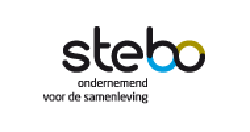
Stebo Competence Centre Community Development
Stebo is working in the Province of Limburg (Belgium), a peripheral industrial area, with small- and medium-sized cities. It covers 2.400 km² and has 880.000 inhabitants. Its industrialization was initiated by the discovery of coal (1902). Last 50 years, after the closure of the mines, the region has firmly diversified in industrial sectors (automotive, logistics, steel, production, construction). The organization now counts 70 employees) started up 30 years ago as a grassroots response to the challenges after the mining closure. Today, it has evolved into an intermediary driving force for socio-cultural and socio-economic development, introducing new approaches to adapt its activities to the changing industrial context.
As an ex-traditional industrial region transforming into a creative area, Limburg has a remarkable richness of relevant examples in industrial culture. Stebo will thus act as a bridgehead towards Western Europe in the project. The institution also offers methodological support to the project partnership and is responsible for the communication work package. In both activities innovative and change facilitating approaches are being used to create a strong InduCult2.0 network (Appreciative Inquiry, Learning Networks, Generative Journalism and Social Media campaigning).
More information: http://www.stebo.be/stebo-introduction/
